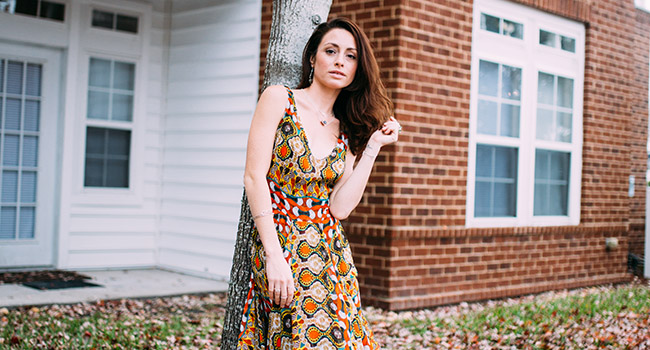African culture with a western twist is what Emily Smith, the designer behind Mowa by Emily Smith, tries to create with every outfit. Smith is one of Phoenix Fashion Week’s top 11 designers and at 23 she became one of the fashion show’s youngest designers.
Smith’s family background is as diverse as her accent. Her father is from Zimbabwe and her mother was born in the U.S. Smith was raised in several parts of Africa and went to a boarding school, wykeham collegiate, in South Africa.
Her African inspired outfits are not only unique in “the states” but also in Africa as well.
“I don’t always use African fabric, and I try to design with elegance in mind,” Smith said. “African designers only use African fabrics, which can be difficult to use because of their stiffness. It affects the design and what you are able to do with that fabric.”

She began designing clothing in her early teens and at the age of 17 having designed over 800 outfits. She says she used to sketch a lot of her designs in school.
“I did do my homework and everything,” Smith said. “But when you get that inspiration that hits you, I would just sketch on a piece of paper during class. I was pretty sneaky. I don’t think they noticed.”
Designing sketches during class seemed to pay off for Smith, because she was chosen as a designer to be showcased for her school’s benefit fashion and talent show.
“It was actually the first time the school had ever chosen a student to showcase in the show,” Smith said.
Even though she would design outfits for her friends and family, Smith says she was the last one to realize she should be a professional fashion designer.
Smith received her Bachelors of Fine Arts at the International Academy of Technology and Design, in Florida.
It wasn’t easy. Smith almost became dismayed from a career as a designer while in school. Many of her professors discouraged her love for designing evening wear.
“Our teachers were pushing us to be in the commercial side of fashion and do something that would just get us a job,” Smith said solemnly. “I had a teacher tell us ‘you’ll never get anywhere with evening wear. It’s not a good idea.’”
Even though those types of statements made Smith question whether pursuing a career in fashion was the correct choice or not, her passion for fashion was the reason she stuck with it and her designs.
She told herself “if you really do love something, go after it.” Smith says it didn’t take her long to bounce back and realize she really was on the right path.
Her confidence in her work paid off as her unique African inspired designs captured the eyes of Phoenix Fashion Week. She received a letter asking her to participate in the designer of the year competition.
“I honestly thought they were calling me to tell me I didn’t get it, I was just happy to send in my application,” Smith said. “When they told me I was in, I had so much energy I couldn’t sleep. I called a million people and I actually had a photo shoot the next morning. I only got three hours of sleep but it was a fantastic day.”
She may have been designing clothing for years but she says the business world of fashion is an entirely new experience. Smith says working with Phoenix Fashion Week couldn’t have come at a better time because she’s been more focused on marketing herself than learning other business aspects.
“It came at the perfect time for me personally,” Smith said. “I was working on building a network for myself, contacts and getting some exposure when I heard from Phoenix Fashion Week. They have helped me exponentially. With their help, I’m definitely going to get all business aspects together.”
Smith applies the lessons learned during Phoenix Fashion (Week), and she has also sought advice from her father. Her father owns an air conditioning business in Botswana, and he tells her she “should always be firm but fair.”
Smith works out of her home in Tampa and gets her clothing manufactured. Fashionistas should expect her fashion line to debut in mid-October, after Phoenix Fashion Week. As of now, she says her designs will be priced around $80 to $250 but that could change depending on manufacturing costs.




